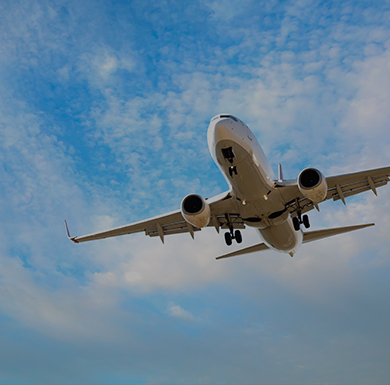
Trying to understand your FAA medical denial for “substance abuse?” It is important to know that the standard for “substance abuse,” as that term is defined by the FAA, is different than the standard utilized in clinical, “real world” medicine. In other words, your regular doctor or psychiatrist may find that you do not have a “substance use disorder,” per the Diagnostic and Statistical Manual of Mental Disorders, Fifth Edition (“DSM-5”), which is the standard used in clinical medicine. Nevertheless, from a regulatory standpoint, the FAA may find that you meet the somewhat nebulous standard for “substance abuse,” as that term is defined in 14 C.F.R. Part 67.
Whether you are applying for a first-class, second-class, or third-class medical certificate, the standard for “substance abuse” is the same. See 14 C.F.R. §§ 67.107, 67.207, and 67.307. Therein, the relevant regulations in 14 C.F.R. Part 67, define “substance abuse,” as disqualifying if within the past two years the FAA finds the following:
(1) Use of a substance in a situation in which that use was physically hazardous, if there has been at any other time an instance of the use of a substance also in a situation in which that use was physically hazardous;
(2) A verified positive drug test result, an alcohol test result of 0.04 or greater alcohol concentration, or a refusal to submit to a drug or alcohol test required by the U.S. Department of Transportation or an agency of the U.S. Department of Transportation; or
(3) Misuse of a substance that the Federal Air Surgeon, based on case history and appropriate, qualified medical judgment relating to the substance involved, finds –
(i) Makes the person unable to safely perform the duties or exercise the privileges of the airman certificate applied for or held; or
(ii) May reasonably be expected, for the maximum duration of the airman medical certificate applied for or held, to make the person unable to perform those duties or exercise those privileges.
Of course, this is the technical aspect of the FAA’s definition of “substance abuse.” However, what are the practical elements of understanding your FAA medical denial for “substance abuse?” In our experience, we have found that the FAA will typically make a determination that an airman meets criteria for “substance abuse” in the following circumstances:
- The airman has been arrested for an alcohol-related, motor vehicle offense, such as a DUI, and the airman produces a breath or blood alcohol specimen value between and including 0.15% and 0.19%. If the airman produces a breath or blood alcohol specimen value of 0.20% or higher, the airman typically is determined to have “substance dependence.”
- The airman has been arrested for an alcohol-related, motor vehicle offense, such as a DUI, and the airman refuses to provide a breath or blood alcohol specimen.
- The airman fails or refuses a DOT-regulated drug test.
- There is documentation of illicit drug use, to include use of marijuana or THC products, within the past two (2) years.
There are exceptions to these situations, of course; however, in our practice these four situations are which cause the FAA to most often make a determination that an airman meets criteria for “substance abuse.” It is important to note that the regulatory framework for “substance abuse” only has a two (2) year lookback. As such, if your event occurred outside of two (2) years, there may very well be an argument in your case that you do not meet criteria for “substance abuse.”
Of course, if you meet criteria for “substance abuse,” you can still establish eligibility to hold a FAA medical certificate and be issued a special issuance authorization. Typically, in situations regarding “substance abuse,” the FAA will require that you engage in monitoring with a HIMS-trained Aviation Medical Examiner. Such monitoring will include participation in random urinalysis, followed by an evaluation by a HIMS-trained psychiatrist. The FAA will expect ongoing monitoring for a period of at least one year, even after issuance of your medical certificate and special issuance authorization.
Why involve a FAA attorney when you have a FAA medical denial for “substance abuse?” Despite what you may hear from other pilots, the medical certification process is more so a legal process than a medical process. Ensuring that your doctor is developing the proper documentation regarding your substance use, as needed, can be a difficult task. To that end, everything that is submitted to the FAA (i.e. records, statements, evaluations, etc.) goes into your airman medical file. This file is what the FAA then utilizes to evaluate whether you are eligible to hold a medical certificate, despite your FAA medical denial for “substance abuse.” If you are later denied and wish to appeal that denial, your airman medical file becomes “Exhibit A” before the NTSB or upon reconsideration by the Federal Air Surgeon. So, a FAA attorney can evaluate your records, prepare a plan for best presentation of your case to the AME or FAA, and best argue your medical eligibility to the Federal Air Surgeon, with an eye for potential, future appeal. Furthermore, if your medical documentation is as strong as possible upon initial submission, in doing so, hopefully, you will avoid unnecessary delay. Also, if you have failed to report your “substance abuse” on your FAA medical application, a FAA medical attorney can give you counsel on how to rectify your omission.
If you are trying to understand a FAA medical denial for “substance abuse,” call the FAA attorneys at The Ison Law Firm. We are happy to evaluate your case and discuss with you a plan for presenting your case to your AME or the FAA. Aviation law is all we do. Nothing else.
Contact the Aviation Lawyers from The Ison Law Firm Aviation Lawyers for Help Today
You need both a pilot and a lawyer on your side for your aviation law needs. Don’t hesitate to contact our team from The Ison Law Firm Aviation Lawyers to schedule a confidential consultation with an experienced aviation lawyer today.
We’re pilots representing pilots. The Ison Law Firm Aviation Lawyers offers FAA enforcement defense and medical certification representation worldwide!
The Ison Law Firm Aviation Lawyers
Phone: Toll-Free 855-322-1215
Office Hours: Mon – Thu, 9:00 AM to 5:00 PM
Fri, 9:00 AM to 12:00 PM
Messages left for attorneys after these business hours will be addressed the following business day, during business hours

